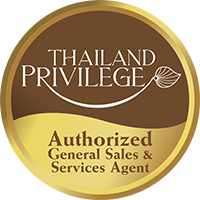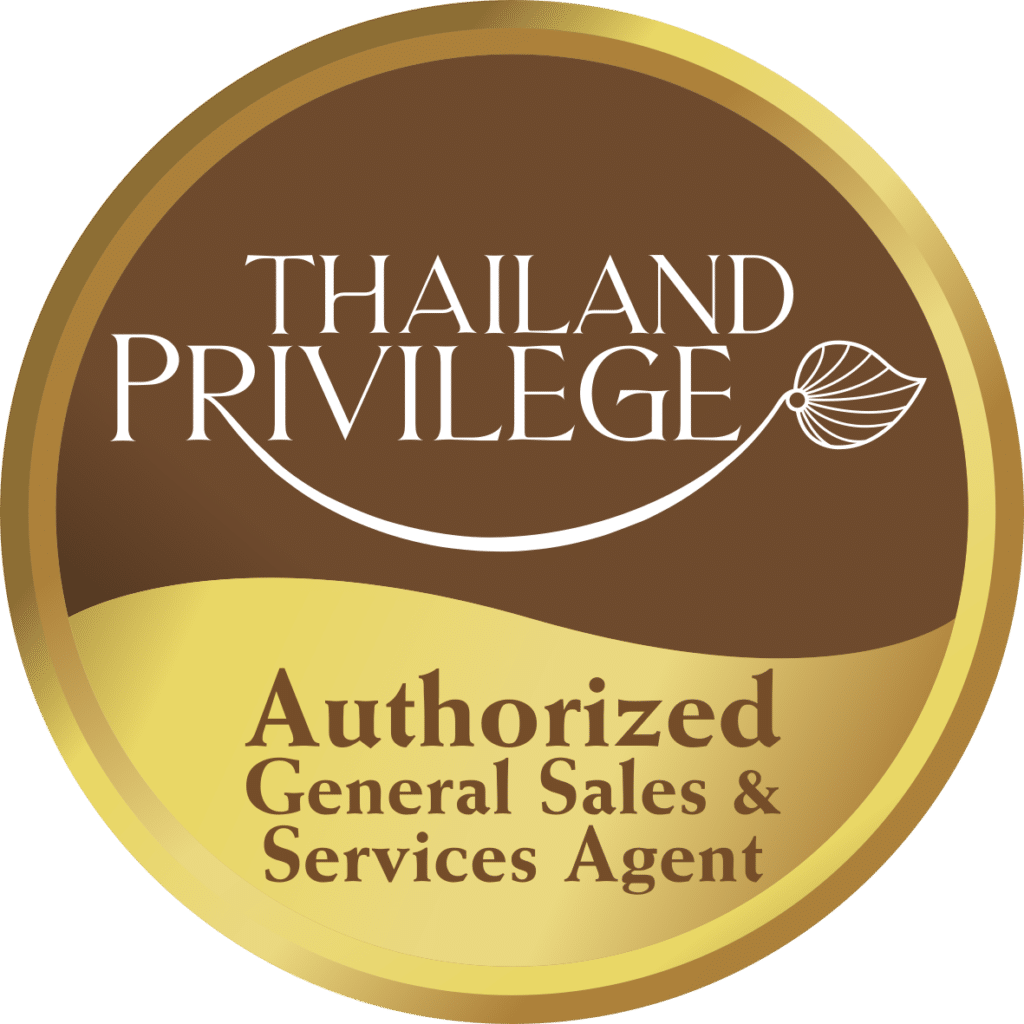The Thailand Privilege Card is often framed as a luxury product—a VIP pass to a life of convenience in the Land of Smiles. With its significant upfront fee, it’s easy to focus on the glamorous perks like airport limousines and fast-track immigration. But to truly understand its worth, you need to approach it not as an expense, but as a financial investment in your life in Thailand.
So, what is the real return on investment (ROI) of a Thailand Privilege Card?
This financial guide for September 2025 goes beyond the obvious benefits. We’ll break down the numbers, calculate the hidden costs of alternative visas, and help you determine the tangible ROI of securing your long-term future in Thailand.
Shifting Your Mindset: From Cost to Investment
The key to understanding the card’s value is to stop thinking about the 900,000 THB for a Gold Card (or more for higher tiers) as a single, massive expense. Instead, see it as a pre-paid fee for five years of seamless living.
- Thailand Privilege Gold Card: 900,000 THB for 5 years
- Amortized Annual Cost: 180,000 THB per year
Now, the question becomes: can you live in Thailand for less than 180,000 THB per year using other visas? On the surface, yes. But you must account for the hidden costs—both direct and indirect—that other visas don’t include.
The Hidden Costs of “Cheaper” Visa Alternatives
Let’s analyze the typical expenses for someone maintaining a long-term stay on rolling tourist visas or an annually renewable non-immigrant visa (like a retirement or education visa).
Direct Costs: The Annual Cash Burn
These are the expenses you’ll pay out-of-pocket every single year.
Visa Runs and Renewals
For those on tourist visas, a border run or flight to a neighboring country is required every 60-90 days.
- Cost per Visa Run (Flight): 8,000 – 15,000 THB (flights, hotel, visa fee)
- Annual Cost (4 runs/year): 32,000 – 60,000 THB
Legal and Agent Fees
For annual visas like the retirement visa, many expats hire an agent to navigate the complex and ever-changing requirements.
- Annual Renewal Agent Fee: 15,000 – 30,000 THB
Your direct, out-of-pocket costs for maintaining a “cheaper” visa can easily reach 47,000 – 90,000 THB per year.
Indirect Costs: The Value of Your Time
This is where the true ROI of the Thailand Privilege Card begins to shine. Your time is a valuable, finite resource. How much is it worth?
Time Spent on 90-Day Reporting
Every 90 days, you’re required to report to immigration.
- Time per Visit: 3-5 hours (travel, waiting, processing)
- Annual Time Lost: 12-20 hours
If you value your time at a conservative 1,500 THB/hour, that’s 18,000 – 30,000 THB worth of your productive time lost each year.
Time Spent on Visa Runs and Renewals
A visa run isn’t just a few hours; it’s a multi-day affair.
- Time per Visa Run: 2-3 full days (travel, appointments)
- Annual Time Lost: 8-12 days
This is productive time you could have spent working, relaxing, or with family.
Calculating the Tangible ROI: A 5-Year Comparison
Let’s put the numbers head-to-head over the 5-year validity of a Gold Card.
| Expense Category (5-Year Total) | Typical Renewable Visa (Mid-Range Estimate) | Thailand Privilege Gold Card |
| Visa/Agent Fees | 325,000 THB (65k/year) | 0 THB (Included in membership) |
| Value of Lost Time (Admin) | 125,000 THB (25k/year) | 0 THB (Services handle it) |
| “Peace of Mind” Premium | ??? | Included |
| VIP Airport Services | N/A | Valued at 30k/year |
| Membership Fee | 0 THB | 900,000 THB |
| TOTAL TANGIBLE COST | ~450,000 THB | 900,000 THB |
On paper, the Privilege Card still seems more expensive. But this calculation is missing the most important factor.
The X-Factor: The ROI of Peace of Mind and Opportunity
The true ROI isn’t just in the numbers you can calculate; it’s in the opportunities you gain when visa stress is removed from your life.
The Value of Certainty
With a Privilege Card, your right to live in Thailand is secure for 5, 10, or 15 years. You are immune to the annual rule changes that cause so much anxiety for retirement and other visa holders. This certainty allows you to plan your life, make investments, and build a real home without the fear that your visa might not be renewed next year. This stability is priceless.
The Opportunity Cost of a Precarious Visa
When you’re constantly worried about your visa status, you’re less likely to:
- Sign a long-term lease on a better property.
- Invest in a local business or community project.
- Fully integrate and learn the language.
The mental energy spent on visa anxiety is a massive opportunity cost. By eliminating it, the Thailand Privilege Card frees up your mental and emotional resources to build a more fulfilling life.
So, is the Thailand Privilege Card a Good Investment?
Financially, the Thailand Privilege Card is a strategic investment in efficiency, time, and certainty.
- You should consider the Thailand Privilege Card a strong investment if you value your time highly, want to eliminate all bureaucratic stress, and desire a secure, long-term future in Thailand without annual uncertainty.
- You might find better value in other visas if you are on a tight budget, don’t mind the annual administrative tasks, and your financial situation comfortably meets the requirements for a visa like the retirement O-A.
Ultimately, the ROI of a Thailand Privilege Card is measured not just in saved baht, but in reclaimed time and unparalleled peace of mind. For many, that’s the most valuable return of all.
Frequently Asked Questions
Can I make my investment back through the lifestyle discounts?
It’s highly unlikely you would recoup the entire membership fee through the lifestyle discounts alone. While the perks at spas, restaurants, and hotels are excellent, you should view them as a bonus that enhances your lifestyle, not as a primary way to make back your investment. The real ROI comes from the time and stress saved on visa administration.
Is the cost of the card tax-deductible?
The Thailand Privilege Card membership fee is generally considered a personal living expense and is not tax-deductible. It’s a payment for a visa and associated services, not a business investment. You should consult with a tax professional for advice specific to your situation.
Does the card’s ROI increase with the higher-tier memberships?
Yes, in a way. While the upfront cost of the Platinum (10-year) and Diamond (15-year) cards is higher, the amortized annual cost is often lower than the Gold Card. This makes the long-term ROI even more compelling, especially for families who can be included in these higher tiers for a marginal increase in cost.
How does market inflation affect the card’s ROI?
The Thailand Privilege Card provides a significant hedge against inflation. You lock in the cost of your long-term visa administration for 5 to 15 years at today’s price. Meanwhile, the costs of visa runs (flights, hotels) and agent fees are subject to annual inflation, meaning they will almost certainly be more expensive in the future.
What is the biggest financial risk of not getting the Privilege Card?
The biggest financial risk of relying on other annually renewable visas is regulatory change. The Thai government can (and does) change the financial and administrative requirements for visas like the retirement visa. A sudden rule change could jeopardize your ability to stay in the country, potentially causing significant financial loss if you’ve established a life and assets here. The Privilege Card eliminates this risk.
If you want to visit these places regularly, apply for a Thailand Privilege visa on thailandelite.net.
References
- Thailand Privilege Official Website: https://www.thailandprivilege.co.th/
- Thai Immigration Bureau: https://www.immigration.go.th/


